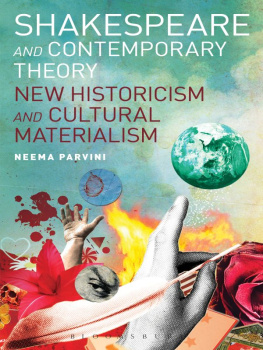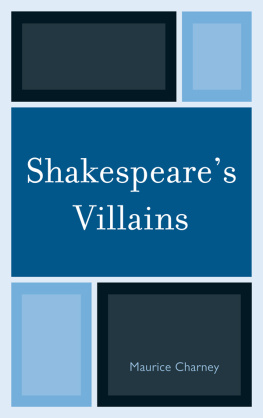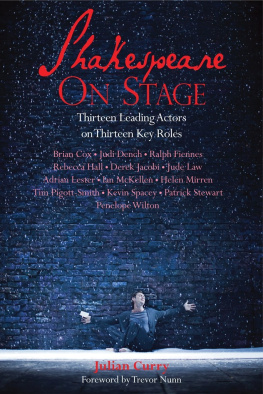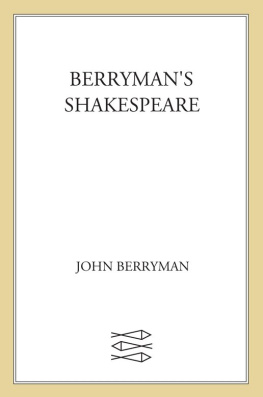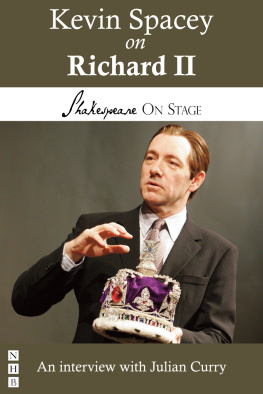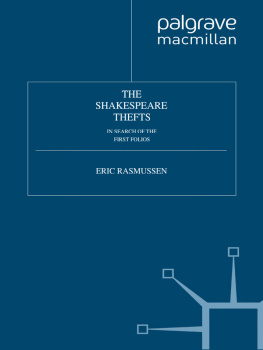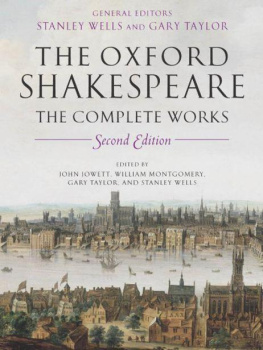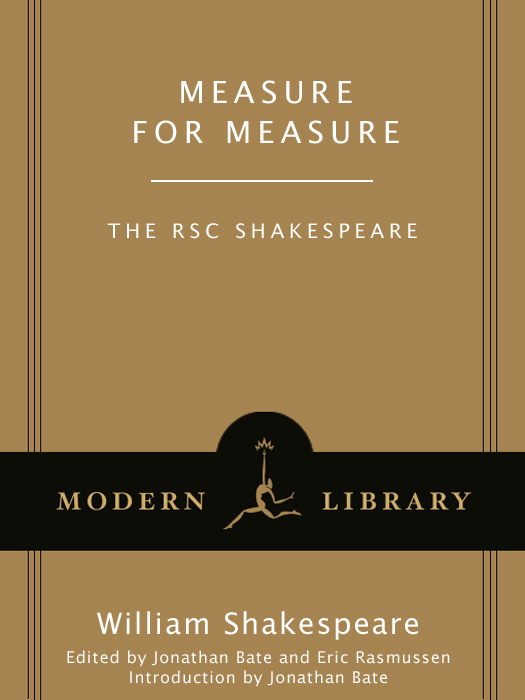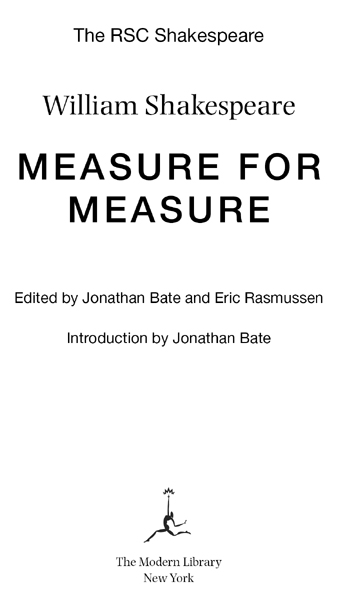2010 Modern Library Paperback Edition
Copyright 2007, 2010 by The Royal Shakespeare Company
All rights reserved.
Published in the United States by Modern Library, an imprint of The Random House Publishing Group, a division of Random House, Inc., New York.
M ODERN L IBRARY and the T ORCHBEARER Design are registered trademarks of Random House, Inc.
Royal Shakespeare Company, RSC, and the RSC logo are trademarks or registered trademarks of The Royal Shakespeare Company.
The version of Measure for Measure and the corresponding footnotes that appear in this volume were originally published in William Shakespeare: Complete Works, edited by Jonathan Bate and Eric Rasmussen, published in 2007 by Modern Library, an imprint of The Random House Publishing Group, a division of Random House, Inc.
eISBN: 978-1-58836-875-1
www.modernlibrary.com
v3.1
The RSC Shakespeare
Edited by Jonathan Bate and Eric Rasmussen
Chief Associate Editors: Hlose Snchal and Jan Sewell
Associate Editors: Trey Jansen, Eleanor Lowe, Lucy Munro, Dee Anna Phares
Measure for Measure
Textual editing: Eric Rasmussen
Introduction and Shakespeares Career in the Theater: Jonathan Bate
Commentary: Charlotte Scott and Hlose Snchal
Scene-by-Scene Analysis: Esme Miskimmin
In Performance: Karin Brown (RSC stagings) and Jan Sewell (overview)
Playing Measure for Measure (interviews by Jonathan Bate and Kevin Wright): Trevor Nunn, Josette Simon, Roger Allam
Editorial Advisory Board
Gregory Doran, Chief Associate Director, Royal Shakespeare Company
Jim Davis, Professor of Theatre Studies, University of Warwick, UK
Charles Edelman, Senior Lecturer, Edith Cowan University, Western Australia
Lukas Erne, Professor of Modern English Literature, Universit de Genve, Switzerland
Jacqui OHanlon, Director of Education, Royal Shakespeare Company
Akiko Kusunoki, Tokyo Womans Christian University, Japan
Ron Rosenbaum, author and journalist, New York, USA
James Shapiro, Professor of English and Comparative Literature, Columbia University, USA
Tiffany Stern, Professor and Tutor in English, University of Oxford, UK
CONTENTS
INTRODUCTION
JUDGE NOT, THAT YE BE NOT JUDGED
The most widely read book in Shakespeares England was the Geneva translation of the Bible. Because of this, the title of Measure for Measure would have been readily recognized by the plays original audience as an allusion to the opening verses of the seventh chapter of St. Matthews Gospel:
Judge not, that ye be not judged.
For with what judgement ye judge, ye shall be judged, and with what measure ye mete, it shall be measured to you again.
And why seest thou the mote, that is in thy brothers eye, and perceivest not the beam that is in thine own eye?
The running head summarizing the content of this page in the Geneva Bible reads Christs doctrineGods providence. Of all Shakespeares plays, Measure for Measure is the one in which the dramatization of Christian doctrine and the motions of divine providence are most prominent.
It is actually unusual for Shakespeare to take his own title quite so seriously. Measure was written soon after Twelfth Night, with its throwaway subtitle or What You Will, and around the same time as Alls Well That Ends Well, which pointedly modifies its own title in the climactic line All yet seems well. Here, by contrast, the moral of the action is spelled out explicitly. Angelo sees the mote in Claudios eye (getting his girlfriend Juliet pregnant before marrying her, albeit after becoming engaged to her) and fails to perceive the beam in his own (dumping his girlfriend Mariana upon discovering that she hasnt got any money). He judges Claudio, but the duke contrives to judge him by his own measure:
An Angelo for Claudio, death for death!
Haste still pays haste, and leisure answers leisure,
Like doth quit like, and measure still for measure.
The Geneva Bible included interpretative glosses in its margins. Beside the measure for measure verses appeared the admonition hypocrites hide their own faults, and seek not to amend them, but are curious to reprove other mens. That could as well be an instant character sketch of Angelo. He is more than once described as precise, a term applied to no other character in Shakespeare. It was a word that often went with puritan, as may be seen from the way in which Shakespeares acquaintance John Florio defined the phrase Gabba santi in his Anglo-Italian dictionary: a precise dissembling puritan, an hypocrite. Shakespeare was always guarded about the Roman Catholicism that was in his bloodwas there a family connection with a certain Isabella Shakespeare, abbess of a nunnery not far from Stratford-upon-Avon?but there is no doubt that he had little time for the puritans who stood on the opposite edge of the religious spectrum.
Despite the steer given by the title, the play is much more tangled than the old drama on which it was based, George Whetstones History of Promos and Cassandra, which showed the unsufferable abuse of a lewd magistrate, the virtuous behaviour of a chaste lady, and the perfect magnanimity of a noble king in checking vice and favouring virtue, all for the purpose of revealing the ruin and overthrow of dishonest practices and the advancement of upright dealing. Shakespeare took Whetstones basic plotline and principal charactersthe indecent proposal, the hypocritical dealing of the lawgiver, the beautiful gentlewoman asked to give up her chastity in return for her brothers life, the ruler who returns and sorts everything outbut greatly complicated the moral vision. Whetstones character of Promos has two anguished soliloquies in which he reflects on his desire for Cassandra. They offer a structural anticipation of Angelos self-questioning Whats this? Whats this? Is this her fault or mine? / The tempter or the tempted, who sins most? Ha? and When I would pray and think, I think and pray / To several subjects. Whetstone, however, lacks Shakespeares gift of writing soliloquy with meditative pauses, shifts between argument and emotion, and rhetorical twists that create the illusion that the character is having the thought as he speaks rather than speechifying on a predetermined theme.
Promos dilemma is set up in terms of a simple opposition between reason and desire; with Angelo, on the other hand, it is the force of Isabellas reasonher powers of linguistic persuasionthat inflames his desire. He wants her not because shes beautiful or even because she is on the verge of taking a vow of perpetual chastity, but because he loves to see her mind and tongue at work. She speaks, and tis such sense / That my sense breeds with it. Here rational sense is the very thing that stirs sensuality. In his book The Structure of Complex Words (1951), the critic William Empson brilliantly demonstrated how a movement between the different senses of the word sense comes to the core of the play.
In a good production, sexual chemistry crackles between Angelo and Isabella even as she resists him. Being a man who is used to getting his way, he does not realize how much he loves it when he does not. Two strong wills strain against each other. As we watch, there is a little part of us that anticipatesor even hopesthat they will end up marrying each other in the manner of Shakespeares other sparring couples, Petruchio and Kate, Berowne and Rosaline, Beatrice and Benedick.



